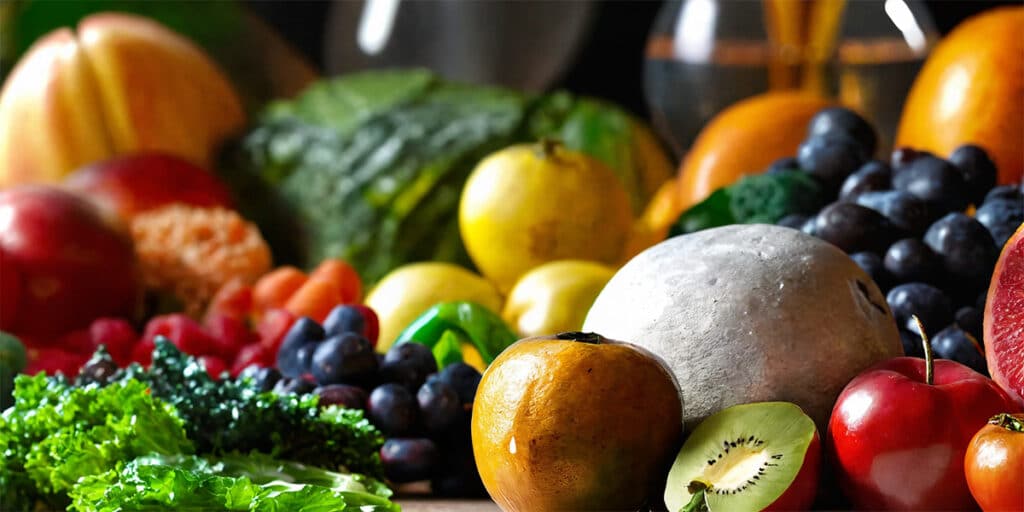- 1. Exploring the Link Between Dietary Choices and Oral Health in Diabetics
- 2. Foods Rich in Calcium and Vitamin D
- 3. The Power of a Balanced Diet: Good Food for Oral Health
- 4. Enhancing Oral Health for Diabetics: Key Takeaways on Good Food for Oral Health
- 5. Good Food for Oral Health: Your FAQs Answered
Maintaining oral health is crucial for everyone, but it holds particular significance for those managing diabetes. This condition not only affects your body’s ability to use insulin but also increases the risk of oral health problems like gum disease and dry mouth. As you navigate the complexities of diabetes management, integrating good food for oral health into your diet can provide a double benefit: improving your dental condition while helping to control blood sugar levels.
Exploring the Link Between Dietary Choices and Oral Health in Diabetics
What you eat impacts more than just your blood sugar; it also influences your oral health, especially for diabetics. Consuming a diet low in sugar and high in nutrients can help prevent oral health complications that diabetics are particularly susceptible to. This overview isn’t just about avoiding harm; certain foods can actively promote better oral health and mitigate the risks associated with diabetes.
Diet plays a pivotal role in the management of diabetes, directly affecting blood glucose levels and indirectly impacting various body systems, including oral health. For diabetics, the risk of periodontal diseases is nearly three times higher than for non-diabetics, which underscores the importance of dietary choices in maintaining oral health. Foods low in refined sugars and high in whole fibers help manage blood sugar spikes and nourish the body while supporting a healthy oral microbiome.
Moreover, the choices you make at the dining table extend beyond glucose control—specific nutrients influence saliva production, pH levels in the mouth, and the integrity of oral tissues. Optimizing your diet not only stabilizes your diabetic condition but also fortifies your mouth against infections and inflammations. By integrating foods that combat the growth of harmful bacteria and enhance the body’s healing and protective mechanisms, you can create a conducive environment for oral health that stands strong against the challenges posed by diabetes.
Foods Rich in Calcium and Vitamin D
Calcium and Vitamin D are essential nutrients for maintaining the health of your teeth and gums. Calcium fortifies both teeth and bones, acting as the primary building block for tooth enamel and bone density. Vitamin D enhances the body’s ability to absorb calcium, ensuring these efforts are not in vain. Among the best sources of these nutrients are dairy products, fortified plant milks, fatty fish, and egg yolks. Regular consumption of these foods, along with other good food for oral health, strengthens your teeth’s enamel and reduces the risk of dental decay—a prevalent concern for individuals managing diabetes.
Crunchy Fruits and Vegetables
Crunchy fruits and vegetables serve a dual purpose; they are nutritious snacks that also promote oral health. Foods like apples, carrots, and celery require extensive chewing, which in turn stimulates saliva production. This increase in saliva flow plays a natural role in cleansing your teeth by reducing the build-up of plaque and bacteria. Furthermore, the fibrous texture of these foods massages the gums, enhancing blood circulation and preventing gum diseases, which are common complications for those with diabetes.
Antioxidant-Rich Foods
Incorporating foods high in antioxidants is vital for combating inflammation and protecting the tissues in your mouth, including the gums. Berries, nuts, grapes, and green leafy vegetables are packed with antioxidants that help safeguard your oral health. These nutrients are particularly important for diabetics as they help reduce gum inflammation and other inflammatory conditions that diabetics are more susceptible to. Regularly eating these antioxidant-rich foods can significantly improve the health of your gums, offering a layer of protection against oral diseases.
Tea
Tea, both green and black varieties, contains polyphenols that are effective in slowing the growth of bacteria associated with cavities and gum disease. The antioxidants found in tea not only help in reducing bacterial growth but also in combating bad breath and potentially protecting against oral cancers. For diabetics, it is advisable to opt for unsweetened varieties of tea to avoid exacerbating blood sugar levels while still reaping these oral health benefits.
Sugar-Free Dairy Products
Dairy products, especially those that are sugar-free, are beneficial for dental health due to their calcium and phosphate content. These minerals play a critical role in remineralizing teeth—this natural process involves the redeposition of minerals onto tooth enamel after they’ve been stripped away by acids. Sugar-free yogurts and cheeses are particularly good at stimulating saliva production, which is beneficial for oral hygiene. This is even more crucial for diabetics, who often experience dry mouth, as increased saliva flow can help alleviate this symptom and reduce related oral health risks.
| Food Type | Benefits | Frequency of Consumption |
|---|---|---|
| Calcium and Vitamin D-rich Foods | Strengthens enamel, reduces gum disease risk | Daily |
| Crunchy Fruits and Vegetables | Natural cleansing, stimulates gums | At least once a day |
| Antioxidant-rich Foods | Reduces inflammation, protects gums | Regularly |
| Tea (Green and Black) | Reduces plaque bacteria, protects against cavities | 1-2 cups daily |
| Sugar-free Dairy Products | Remineralizes teeth, increases saliva flow | Regularly |
| Water | Cleanses mouth, maintains hydration | Frequently throughout the day |
| Whole Grains | Lower glycemic index, supports gum health | With each meal |
| Lean Proteins (Chicken, Fish) | Supports tissue repair, maintains muscle health around jaws | 2-3 times per week |
| Nuts and Seeds | Healthy fats, promotes gum health, less plaque | Snack portions daily |
| Herbal Supplements (Aloe Vera, Green Tea Extract) | Antimicrobial properties, aids in reducing gum inflammation | As recommended |
The Power of a Balanced Diet: Good Food for Oral Health
A balanced diet isn’t just beneficial; it’s essential for managing diabetes and maintaining optimal oral health. The interplay between what you eat and your health outcomes is particularly pronounced when dealing with chronic conditions like diabetes, which directly impacts oral health. Here are some critical benefits of a balanced diet:
Stabilizing Blood Sugar Levels
A diet that is rich in fiber and low in added sugars plays a pivotal role in controlling blood sugar levels. High-fiber foods such as whole grains, legumes, fruits, and vegetables slow down the absorption of sugar in your bloodstream, preventing sudden spikes in glucose levels. This steady control is crucial for diabetics as it helps manage the condition and mitigates its side effects, including those affecting oral health.
Minimizing Oral Health Risks
Maintaining a healthy diet contributes significantly to oral health by reducing the risk of common issues like gum disease and tooth decay. Diets low in sugary snacks and beverages decrease the likelihood of plaque formation, which can lead to cavities and periodontal disease. Furthermore, a diet rich in essential nutrients such as vitamins and minerals supports the strength and repair of oral tissues, enhancing gum health and resistance to infections.
Enhancing Overall Wellbeing
The benefits of a balanced diet extend beyond blood sugar regulation and oral health to improve overall wellbeing. Good nutrition supports bodily functions, boosts the immune system, and decreases inflammation, all of which contribute to better health and by extension, healthier teeth and gums. Improved general health can lessen the severity of diabetes symptoms and, importantly, reduce the risk of complications that can arise from this condition, including severe oral health issues.
A balanced diet acts as a cornerstone in the management of diabetes and the prevention of associated oral health problems. Integrating good food for oral health creates a foundation for a healthier lifestyle that not only tackles the symptoms and risks associated with diabetes but also enhances the quality of life by promoting robust oral and overall health.
Enhancing Oral Health for Diabetics: Key Takeaways on Good Food for Oral Health
Water: The Ultimate Mouth Cleanser
Drinking plenty of water throughout the day is fundamental for anyone, but it plays a particularly crucial role in the oral health of diabetics. Regular water intake helps to wash away residual food particles and bacteria from the teeth and gums, thereby reducing the risk of plaque buildup and dental decay. Additionally, staying hydrated supports consistent saliva flow, which is essential for maintaining oral hygiene. This is especially important for diabetics, who are more prone to experiencing dry mouth. If possible, choose fluoridated water, as fluoride is a proven ally in the fight against tooth decay, enhancing the tooth enamel’s resistance to acidic attacks from plaque bacteria and dietary sugars.
The Strategic Sip and Crunch Plan
Integrating water alongside other beneficial foods into your daily regimen is a smart strategy for enhancing oral health and managing diabetes effectively. This dietary approach goes beyond merely avoiding sugars; it involves a proactive consumption of foods that strengthen your teeth and gums, protecting against the oral health complications often faced by those with diabetes. By focusing on a diet that includes calcium and vitamin D-rich foods, crunchy fruits and vegetables, antioxidant-loaded ingredients, and plenty of water, you set up a strong defense against the oral challenges that diabetes may pose. This strategic combination of sipping and crunching is not just about maintaining oral health but enhancing overall diabetic management through thoughtful dietary choices.
Natural Dental Defense: Crunchy Fruits and Vegetables
Crunchy fruits and vegetables function as “Natural Toothbrushes.” Their fibrous textures do more than just satisfy your crunch cravings—they help clean your teeth and stimulate gum health. Chewing these foods increases saliva production, which naturally cleans teeth and reduces plaque buildup. This is vital for diabetics, as it significantly lowers the risk of developing gum diseases, which are more prevalent and severe in diabetic individuals.
Combat Gum Inflammation: The Power of Antioxidants
Antioxidant-rich foods are “Inflammation Fighters” that play a significant role in managing and reducing inflammation, a common issue in diabetic oral health. Foods such as berries, nuts, and leafy greens are loaded with antioxidants that help protect the gums from inflammation and the resultant diseases. Regular inclusion of these foods in the diet can be particularly beneficial for those with diabetes, helping to mitigate the heightened risk of inflammatory gum diseases.
Good Food for Oral Health: Your FAQs Answered
Why is oral health particularly important for diabetics?
Diabetics are more prone to infections and inflammatory diseases, including gum diseases, due to altered blood glucose levels, making effective oral health practices crucial.
Can eating cheese help my teeth?
Yes, cheese helps in neutralizing acids in the mouth and provides calcium and phosphates that strengthen teeth, making it excellent for oral health.
How does tea benefit my oral health?
Tea contains polyphenols that reduce bacterial growth and the acidity of saliva and plaque, helping prevent cavities and gum disease.
Are crunchy vegetables good for my teeth?
Absolutely. They help clean your teeth and increase saliva flow, which is crucial for neutralizing bacteria and washing away food particles.
How do antioxidants improve oral health for diabetics?
Antioxidants reduce inflammation and protect against cell damage, crucial for preventing gum diseases that diabetics are at high risk for.
Why should diabetics drink more water?
Water helps maintain saliva flow, washes away food particles, and reduces dry mouth, which is common in diabetics.
Is sugar-free gum beneficial for diabetics?
Yes, chewing sugar-free gum helps increase saliva production, which protects against tooth decay and cleanses the mouth.
Can I drink flavored water?
Flavored water without added sugars or acids can be a good option, but plain fluoridated water is best for oral health.
What fruits are best for diabetic oral health?
Fruits low in sugar and high in fiber, such as apples and pears, are excellent for cleaning teeth and maintaining healthy gums.
How often should diabetics visit the dentist?
Diabetics should visit the dentist at least twice a year for check-ups and professional cleanings to prevent oral health issues.
References
“Association between Sugar Intake, Oral Health, and the Impact on Overall Health: Raising Public Awareness” by David P. Cappelli & Connie C. Mobley. This review examines the evidence supporting the impact of sugars on oral diseases and the role of sugars in oral-systemic complications.
“Oral Health | The Nutrition Source | Harvard T.H. Chan School of Public Health“. This article provides information about the role of diet in oral health, including the benefits of eating foods high in calcium and other nutrients such as cheese, milk, plain yogurt, calcium-fortified tofu, leafy greens, and almonds.
“Diet and Oral Health: Factsheet on oral health and sugars“. This factsheet provides information about the impact of sugar intake on oral health.
“CSH.HarvardNCECE Diabetes and Oral Health Brief – Harvard University“. This brief discusses the link between diabetes and oral health.




